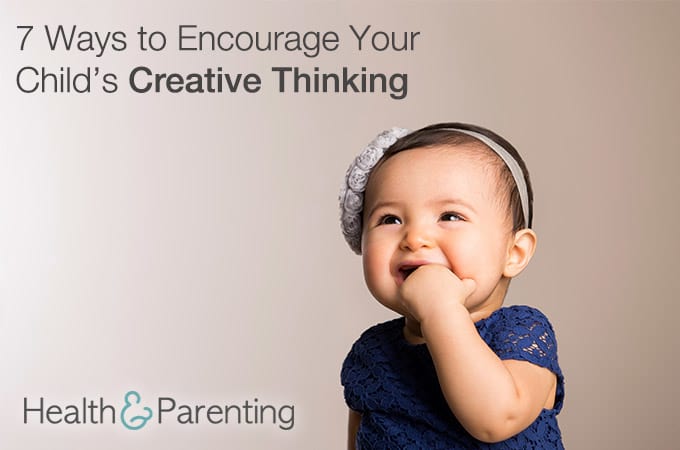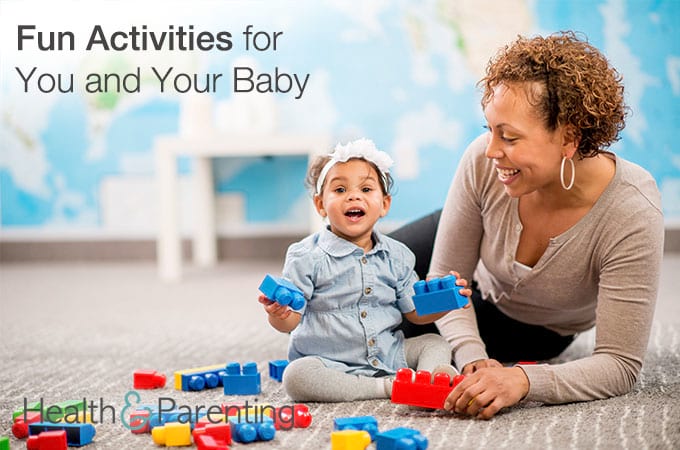You know your baby is learning every day. And you want to do all you can to engage him and help build his little brain. While flashcards and structured lessons aren’t necessary, some simple lifestyle adjustments can encourage creativity, problem solving and, eventually, more complex thinking.
Babies in the first year experience sensory-motor thinking – learning about their world through touch, sound, taste, sight and smell. When your baby starts to play more with objects, he begins to learn the significance of cause and effect (if I drop this, mom will pick it up) and problem solving (how do I get this into this?).
Along with more complex thinking, you can foster creative thinking in your children. Creativity is a critical component of success, health and happiness. Creative people are flexible, adaptable and good at problem solving. Creativity isn’t necessarily inborn – it can be taught. It doesn’t mean buying all the right toys or watching just the right videos – it means giving your children opportunities to explore and challenge themselves, even at this young age.
- Limit screen time: If your child is younger than age 2, you should discourage screen time altogether, and it should be limited for older children. Too much screen time may lead to attention problems, among other adverse outcomes.
- Unschedule: Allow your child to have regular downtime or unstructured play time to explore his own interests (yes, even as a baby) and skills.
- Get outdoors: Spend time in nature. Being outside encourages physical activity and active play. Hiking, biking, or just playing tag in the yard or park should be regular parts of your child’s life as he grows. Even now, the fresh air and sunshine will keep your baby happy and healthy as you take a walk with the stroller or with baby in a carrier.
- Provide toys, like building blocks and dress-up clothes, that facilitate imaginative thinking. Themed toys limit your child’s creativity – there is a proscribed way to play with them and often children won’t think outside the box. Even plastic containers and lids, wooden spoons, and your car keys are fun “toys” for babies.
- Hands off: Don’t direct all of your baby’s activities. Allow him the space to explore and try new things. Sometimes he might fail, and that’s OK. It teaches him resilience and problem solving.
- Encourage reading: Read to your baby every day. This facilitates language learning, as well as imagination. Have books that your baby can manipulate on his own (even though he may just chew on them at first).
- Play with your baby, toddler, preschooler, child: Take time out from your schedule and routine to play with your child, whether it’s building a block tower, throwing a ball, or chasing around the yard, your involvement is an important component to your child’s feelings of security and attachment, a good base for creativity and intelligence.
Written by Michelle, childbirth instructor, lactation consultant, and mother to 4 busy kids
This information is not intended to replace the advice of a trained medical doctor. Health & Parenting Ltd disclaims any liability for the decisions you make based on this information, which is provided to you on a general information basis only and not as a substitute for personalized medical advice. All contents copyright © Health & Parenting Ltd 2016. All rights reserved.











